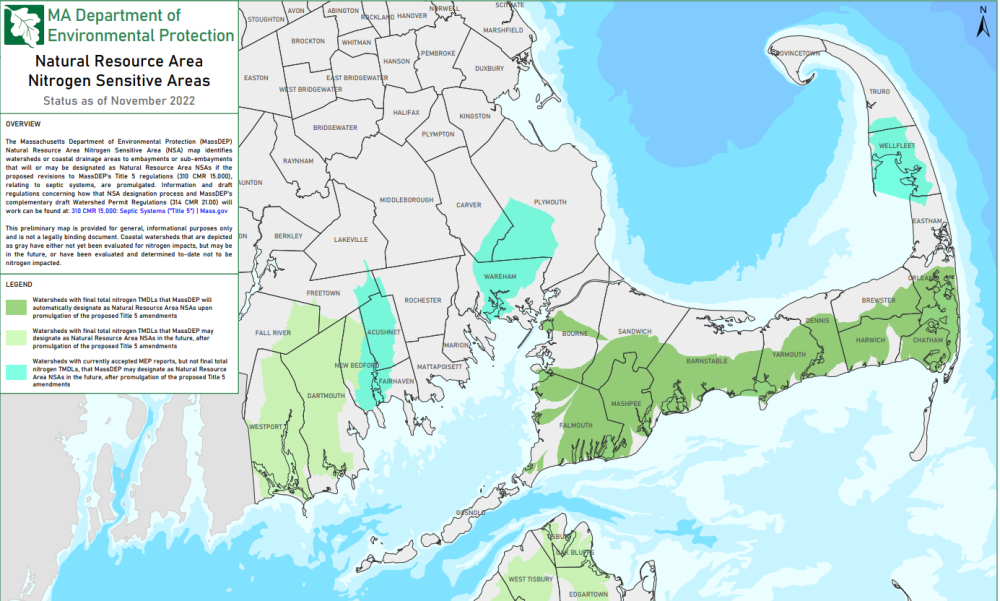Dartmouth legislators file bill regarding proposed septic changes
As the state and local officials debate proposed changes to the commonwealth’s septic system regulations, Dartmouth’s representatives to Beacon Hill are hoping to amend any changes that may come into effect.
On Jan. 18, State Sen. Mark Montigny (D-New Bedford) and State Rep. Chris Markey (D-Dartmouth) filed a bill “An Act Relative to Title V of the State Environmental Code.”
The bill proposes that any costs associated with the state’s Department of Environmental Protection septic changes can not be implemented unless the department funds the costs incurred by the local municipalities and individual residents.
The legislation would also prohibit DEP from imposing septic upgrades on individual homes unless it is part of a watershed permit requested by the town and funded by the state.
In an effort to decrease the amount of nitrogen entering the region’s waterways, the state proposes towns either apply for “watershed permits” or have septic system owners upgrade their tanks to ones using “best available nitrogen technology” — a proposal state and local officials have been at odds over in recent months.
Under MassDEP’s proposal, all septic systems within watersheds feeding into Buzzards Bay would have to be upgraded to active nitrogen removal systems within five years. Some estimates put the cost of new systems at upward of $50,000 per installation.
According to the state, there are about 2,700 homes connected to septic systems in the Dartmouth watersheds that would be affected by the regulation change.
The other option under the proposal is for a municipality to apply for a “watershed permit” which would allow a town to develop a plan to cut its nitrogen pollution by 75% over 20 years, according to the draft regulation.
At a Jan. 18 information session, DEP representative Marybeth Chubb noted that the state will allow impacted residents to apply for low-interest loans from their local boards of health for these new systems.
The department is also seeking additional state funding to pay for municipal relief. The regulation is currently in draft from.
A copy of the bill is attached to this story.












